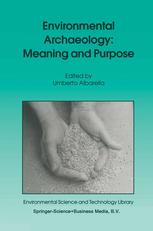

Most ebook files are in PDF format, so you can easily read them using various software such as Foxit Reader or directly on the Google Chrome browser.
Some ebook files are released by publishers in other formats such as .awz, .mobi, .epub, .fb2, etc. You may need to install specific software to read these formats on mobile/PC, such as Calibre.
Please read the tutorial at this link: https://ebookbell.com/faq
We offer FREE conversion to the popular formats you request; however, this may take some time. Therefore, right after payment, please email us, and we will try to provide the service as quickly as possible.
For some exceptional file formats or broken links (if any), please refrain from opening any disputes. Instead, email us first, and we will try to assist within a maximum of 6 hours.
EbookBell Team

0.0
0 reviewsDespite the fact that the human life of the past cannot be understood without taking into account its ecological relationships, environmental studies are often marginalised in archaeology. This is the first book that, by discussing the meaning and purpose we give to the expression `environmental archaeology', investigates the reasons for such a problem. This is achieved through the use of theoretical considerations and the aid of a number of case studies, which, by taking us from Anglo-Saxon England to pre-Columbian Venezuela, and from Classical Greece to late Antique Egypt, emphasise the potential of an integrated approach. The book is written by archaeologists with different backgrounds and is addressed to all researchers who care about the past relationship between people and the rest of Nature. Despite the complexity of some of the issues tackled, the book is written in an accessible manner and should be of interest to all students who want to understand the essence of archaeology beyond the boundary of the individual sub-disciplines.